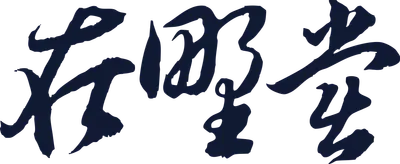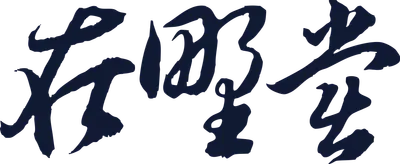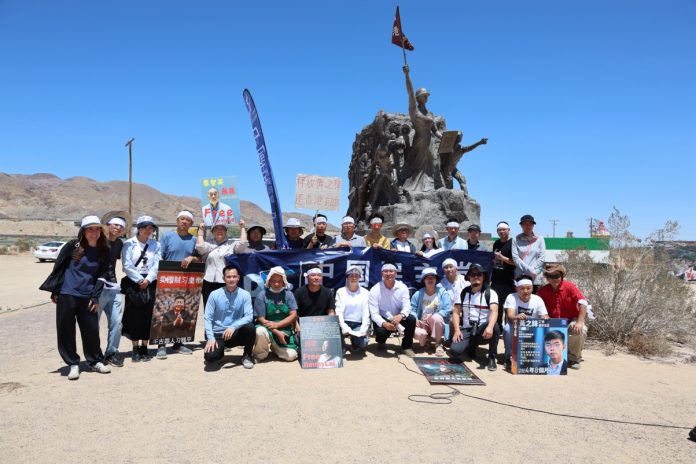作者:刘世伟 责任编辑:刘双源 罗志飞
中国共产主义的核心逻辑是以党的绝对权威为核心,任何挑战这一权威的行为都被视为对体制的威胁,这种逻辑在2019年反送中运动中表现得淋漓尽致。
面对百万市民的和平游行,香港政府与中共中央政府并未尝试通过公开对话或协商解决问题,相反特首林郑月娥在6月12日强推《送中条例》,导致警民冲突升级。中共中央政府则将运动定性为“颜色革命”,指责外国势力干预,进一步关闭了谈判空间。
随 着运动持续,警方使用催泪弹、橡胶子弹等武力清场,逮捕人数截至2020年5月底接近9000人。 2020年6月30日,北京绕过香港立法会,直接颁布《香港国安法》,将“分裂国家”、“颠覆政权”等罪名引入香港法律体系,标志着对运动的全面镇压。国安法的实施不仅针对抗议者,还对言论自由、新闻自由构成全面打压,显示出中共对任何形式的异议都不予容忍。

黄之锋,香港民主运动的代表人物,于1996年出生,15岁时(2011年)创立“学民思潮”,反对香港政府推行“德育及国民教育科”,成功迫使政府取消相关课程,展现了其组织能力和影响力。 2014年,他领导“雨伞运动”,要求真普选,因占领公民广场被捕,并被《时代杂志》评为全球最具影响力少年。 这些行动表明,黄之锋试图通过和平抗争推动民主改革,但政府并未与之协商,而是选择司法打压。
在反送中运动中,黄之锋作为“香港众志”秘书长,积极组织抗议活动,呼吁国际社会关注香港局势。2019年6月,他因包围警察总部被捕,2020年11月因非法集结罪被判监禁13.5个月。 即使在高压下,他仍坚持发声,2020年5月他公开表示将反抗《香港国安法》,与中共展开“拉锯战”。
2021年1月,黄之锋因涉嫌违反国安法被捕;2024年11月,他因“47人案”(涉及民主派初选)被判处4年8个月监禁;2025年6月,他再次因涉嫌勾结外国势力被控,面临终身监禁的风险。 这些接连的指控表明,即使黄之锋已身陷囹圄,中共仍不放过他,试图通过终身监禁彻底消灭其影响力。这种持续的迫害,正是中共独裁体制拒绝任何妥协的体现——对异议者不仅要打压,还要彻底消灭。

图注:中国民主党于2025年6月14日在洛杉矶自由雕塑公园声援民主斗士黄之锋
黄之锋的抗争引起了国际关注,他被视为香港民主的象征。2025年6月,海外香港人发起声援活动,反对中共暴政——在黄之锋监禁期间再次对他逮捕的恶劣行为。
香港反送中运动及其后果,深刻揭示了中国独裁体制的本质:以党的绝对权威为核心,拒绝任何形式的妥协与谈判。面对百万市民的和平诉求,中共选择以武力镇压、法律打压和文化改造回应,最终通过《香港国安法》重塑香港社会。黄之锋的抗争事迹则是这一本质的缩影——从学民思潮到雨伞运动,再到反送中运动,他始终以和平方式争取民主,却换来一次次监禁与迫害。一切企图让中共改变体制,实现民主的想法都是错误的,因为他们是既得利益者,民主只会给中共独裁体制带来灭亡。中共宁可让香港烂掉,也不会让香港留存民主的火种。
黄之锋的经历告诉我们,中共独裁体制不仅不容忍异议,还会通过系统性的打压消灭任何潜在威胁。反送中运动的失败与黄之锋的遭遇,是对这一本质的悲剧性证明。他本可以逃离香港,但他选择留下,用自己遭遇告诉我们:香港的未来必定在国安法的阴影下失去光明,但黄之锋等抗争者的勇气已成为追求自由的人们一座领航灯塔!
The Failure of Hong Kong’s Anti-Extradition Movement: The CCP’s Inherent Refusal to Compromise
By Liu Shiwei | Chief Editors: Liu Shuangyuan, Luo Zhifei Translator: Lu Huiwen
At the core of Chinese communism lies an unwavering commitment to the absolute authority of the Party. Any challenge to that authority is seen as a threat to the regime itself. This core logic was on full display during the 2019 Anti-Extradition Movement in Hong Kong.
In the face of mass peaceful demonstrations involving over a million citizens, the Hong Kong government, backed by Beijing, made no effort to resolve the crisis through dialogue or negotiation. Instead, Chief Executive Carrie Lam forcibly pushed forward the Extradition Bill on June 12, triggering violent clashes between police and protesters. Beijing, for its part, labeled the movement a “color revolution” and accused foreign forces of interference, thereby closing the door to any potential negotiations.
As the protests continued, the police escalated their use of force, deploying tear gas and rubber bullets to disperse crowds. By the end of May 2020, nearly 9,000 people had been arrested. On June 30, 2020, Beijing bypassed Hong Kong’s legislature and directly imposed the Hong Kong National Security Law, introducing charges such as “secession” and “subversion” into Hong Kong’s legal system. This law marked the beginning of a full-scale crackdown—not only on protesters but also on freedom of speech and press—revealing the CCP’s absolute intolerance for dissent of any kind.
Joshua Wong, a prominent figure in Hong Kong’s pro-democracy movement, was born in 1996. At the age of 15 (in 2011), he founded the student group Scholarism, which opposed the Hong Kong government’s “Moral and National Education” curriculum and succeeded in forcing its withdrawal—demonstrating his organizational skill and influence. In 2014, he led the Umbrella Movement, calling for genuine universal suffrage. He was arrested for occupying Civic Square and later named one of TIME Magazine’s most influential teens globally. These actions reflect his unwavering attempt to pursue democratic reform through peaceful protest, but rather than engage in dialogue, the authorities chose legal suppression.
During the Anti-Extradition Movement, Wong, as Secretary-General of Demosistō, actively organized protests and urged international attention on Hong Kong’s plight. In June 2019, he was arrested for surrounding police headquarters. In November 2020, he was sentenced to 13.5 months in prison for illegal assembly. Even under extreme pressure, he continued to speak out. In May 2020, he publicly vowed to resist the National Security Law, declaring a “war of attrition” against the CCP.
In January 2021, Joshua Wong was arrested under the National Security Law. In November 2024, he was sentenced to 4 years and 8 months in prison in the “47 activists case” involving opposition primaries. In June 2025, while still incarcerated, he was charged again—this time with alleged “collusion with foreign forces,” potentially facing life imprisonment. These repeated prosecutions show that even when behind bars, Wong remains a target. The CCP seeks not just to suppress him but to eradicate his influence altogether. This relentless persecution reflects the nature of the CCP’s dictatorship: it refuses compromise and aims to obliterate all dissent.
Caption: On June 14, 2025, the China Democracy Party held a solidarity event at the Liberty Sculpture Park in Los Angeles to support Joshua Wong.
Joshua Wong’s resistance has garnered international attention, and he is widely seen as a symbol of Hong Kong’s democracy movement. In June 2025, overseas Hong Kongers launched global solidarity events to protest the CCP’s blatant injustice—especially the additional charges laid on Wong while he was already imprisoned.
The Anti-Extradition Movement and its aftermath reveal a grim truth about the CCP’s authoritarian nature: built on absolute Party authority, it rejects any form of compromise or negotiation.
When faced with peaceful demands from millions, the CCP responded with force, repression through law, and ideological restructuring—culminating in the National Security Law that reshaped Hong Kong society. Joshua Wong’s journey is a microcosm of this reality: from Scholarism to the Umbrella Movement to the Anti-Extradition Movement, he pursued democracy peacefully but was met with repeated imprisonment and persecution. Any hope that the CCP would democratize is a fallacy. As a regime with everything to lose, democracy spells its end. The CCP would rather see Hong Kong collapse than allow even a spark of democracy to survive.
Joshua Wong’s experience illustrates how the CCP’s totalitarian regime not only rejects dissent but systematically seeks to eliminate all potential threats. The failure of the Anti-Extradition Movement and the tragedy of Wong’s continued persecution are evidence of this brutal reality. He could have fled Hong Kong—but he chose to stay, using his own suffering to tell the world: the future of Hong Kong lies under the shadow of the National Security Law, but the courage of Wong and others will remain a beacon for all who pursue freedom.





香港曾经是民主自由的一扇窗口,
现在中共已经把它关上了。